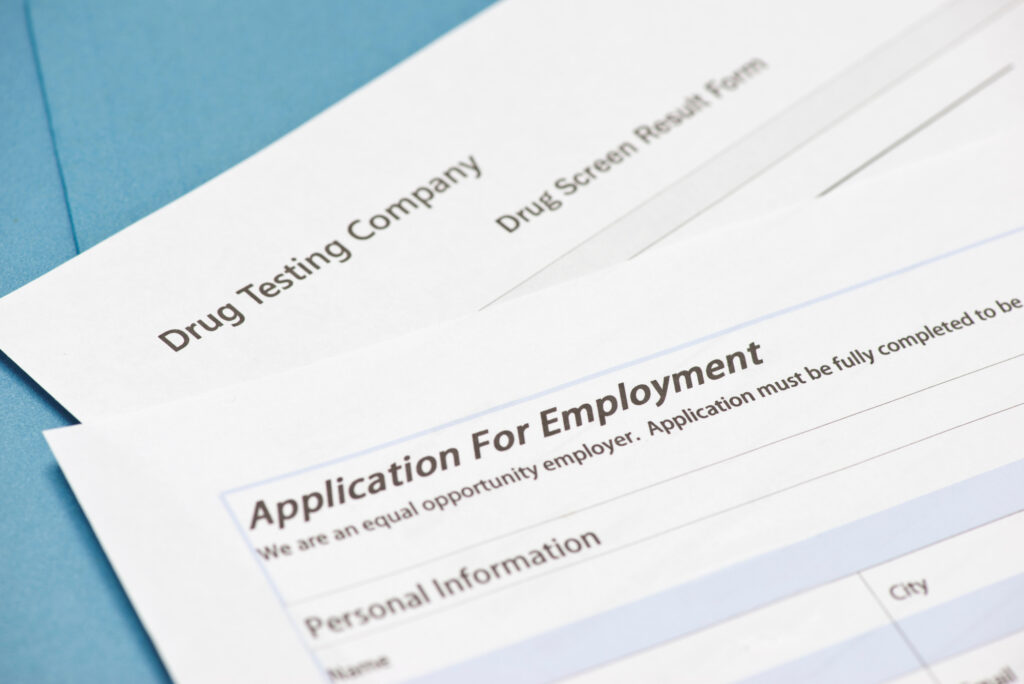Can I Lose My Job If I Refuse a Drug Test After Treatment?

What to know before you say no.
If you’ve recently completed addiction treatment, you’re likely focused on staying grounded, keeping your recovery strong, and getting your life back on track—including returning to work. But then your employer asks you to take a drug test, and you’re left wondering: Can I refuse? And if I do, could I lose my job?
You’re not the only one asking. Let’s break it down.

Can I Refuse a Drug Test at Work?
The short answer? Technically, yes—you can say no. But there may be consequences.
If you’re asking, “Can I refuse a drug test at work?”—you’re really asking two questions:
- Can I legally refuse?
- What happens to my job if I do?
While there’s usually no law forcing you to take a drug test, your employer has the right to enforce company policy, and your refusal—also called a “test refusal”—may lead to disciplinary actions, up to and including termination, depending on the situation.
When Are Drug Tests Allowed?
California employers (and those in other states) can require employees to be tested in certain circumstances, like:
- Pre-employment testing
- Random drug testing (for safety-sensitive positions)
- Testing with reasonable suspicion (like if you’re acting intoxicated)
- Post-treatment return-to-work testing
These tests can include alcohol testing and screening for illegal drugs, and your employer’s rights are usually spelled out in your employee handbook or a written drug policy.
What If I’m a Current Employee in Recovery?
If you’re a current employee who recently finished rehab and you’re doing well in recovery, being asked to take a drug test can feel triggering—or even invasive. But refusing the test may raise red flags, especially if your employer follows state law or company guidelines about maintaining a drug-free workplace.
In some cases, you might be immediately removed from a safety sensitive position or placed on leave until a test is completed.
What Happens If I Refuse the Test?
A test refusal often has the same impact as a failed test in the eyes of many employers—especially if outlined in your company policy. This means you might face:
- Loss of your job
- Suspension or probation
- Loss of professional licensing (in some industries)
That said, if you have a valid medical reason—like a prescribed medical condition or Disabilities Act protection—you may be able to explain your situation and avoid wrongful termination. It’s important to be fully aware of your rights and responsibilities.
What Are My Employee Rights?
While private employers have broad authority to implement drug testing policies, employee rights still matter. If you believe you’re being targeted unfairly, or if the request feels like workplace discrimination, you should:
- Ask for documentation of the reason for testing
- Review your employee handbook
- Speak with HR about the policy
- Consider talking to an employment lawyer if you feel your rights were violated
Remember: the goal should never be to punish people in recovery. Many employers want to support valuable employees who are committed to the recovery process—but policies must be applied fairly.
How Ocean Ridge Can Help
At Ocean Ridge Recovery in Orange County, CA, we understand that recovery doesn’t end when treatment does. Navigating the return to work—and all the complicated stuff that comes with it—can be overwhelming. Our addiction treatment center can help you prepare for drug policies, workplace conversations, and potential testing site visits with confidence and clarity.
If you’re worried about how your job might react to your recovery journey, we’re here to talk you through it—without judgment. Reach out today to get some guidance on your next steps.


Start Your Journey By Getting Help Today
Our medical, clinical, and counseling staffs on site are available 24/7.
FAQs About Drug Testing After Treatment
Can I refuse a drug test at work without being fired?
While you can technically say no, generally speaking, refusal may result in consequences like job loss—especially if there’s a clear policy in place and you agreed to it when hired.
What happens if an employee refuses to submit to a drug test?
If an employee refuses to submit to a required test, it may be considered a failure to comply with company procedures, and could be treated the same as a test positive result under most workplace policies.
Is drug testing allowed under California law?
Yes, California law permits drug testing under certain specific circumstances, such as after a contingent offer of employment, or when there’s reasonable suspicion of drug use, as long as the employer follows proper regulations and testing is conducted fairly.
Can I lose a job offer if I test positive for drug use?
Yes. If you test positive after a contingent offer, employers are within their rights to withdraw the offer—especially if their policy is based on legal safety or performance concerns.
How can I determine if my company has a legal drug testing policy?
To determine whether your employer’s drug testing policy is legal, review your employee handbook or onboarding materials. A clear policy should outline when and how tests are conducted, what happens after a failure, and your rights as an employee.

Brought to you by the Ocean Ridge Team in San Clemente, blending professional expertise with the healing benefits of coastal living.


















